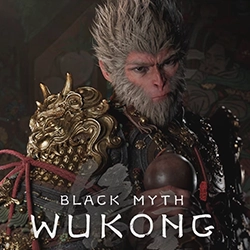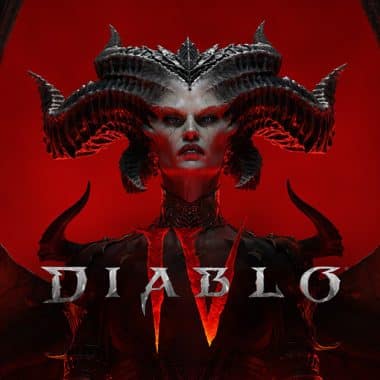The Future of Fortnite: Exploring NFT Gaming and Blockchain Integration
Introduction
Fortnite, the iconic battle royale game developed by Epic Games, has captured the hearts and minds of millions of players worldwide since its release. With its engaging gameplay, vibrant visuals, and ever-evolving world, Fortnite has become a cultural phenomenon. In recent years, the gaming industry has witnessed the rise of Non-Fungible Tokens (NFTs) and blockchain technology, revolutionizing the way players interact with digital assets. This article delves into the future of Fortnite, exploring the potential integration of NFT gaming and blockchain technology, and the impact it could have on the gaming landscape.
Early Days of Fortnite
Fortnite’s Rise to Prominence
Fortnite burst onto the gaming scene in 2017 with its unique blend of building mechanics, fast-paced combat, and quirky aesthetics. The game quickly gained traction, attracting millions of players and establishing itself as a cultural phenomenon. Epic Games’ innovative approach to gameplay mechanics, frequent content updates, and cross-platform accessibility helped Fortnite surpass its competitors and become one of the most popular games of all time.
Introduction of NFT Gaming
While Fortnite initially focused on traditional gaming models, the introduction of NFT gaming has opened up new possibilities for the game’s future. NFTs allow players to truly own their in-game assets, such as skins, emotes, and weapons, by storing them on the blockchain. This revolutionary concept has the potential to transform Fortnite’s virtual economy, giving players more control over their digital possessions and fostering a sense of ownership and investment in the game.
Integration of NFT Gaming
Incorporating NFTs into Fortnite
The integration of NFTs into Fortnite could have far-reaching implications for both players and developers. By tokenizing in-game assets as NFTs, Epic Games could empower players to buy, sell, and trade items freely on the blockchain. This would create a decentralized marketplace where players have full control over their digital belongings, fostering a vibrant economy within the Fortnite ecosystem. Additionally, NFTs could introduce new revenue streams for Epic Games through transaction fees and royalties on secondary market sales.
Enhancing Player Engagement
NFT gaming has the potential to enhance player engagement and retention in Fortnite. The ability to truly own and monetize in-game assets incentivizes players to invest more time and resources into the game, as they seek to acquire rare and valuable items. Furthermore, NFTs can facilitate unique experiences and interactions within the game, such as limited-edition skins or collectible items tied to specific events or achievements. This could drive increased participation in in-game events and competitions, further enriching the Fortnite experience for players.
Blockchain Integration
Utilizing Blockchain Technology
Blockchain technology offers numerous benefits for Fortnite beyond NFT integration. By leveraging blockchain technology, Epic Games can improve security, transparency, and trust within the game’s ecosystem. Smart contracts can automate transactions and enforce rules governing in-game asset ownership and trading, reducing the risk of fraud and disputes. Additionally, blockchain-based authentication systems can enhance account security and protect against hacking and unauthorized access.
Exploring Cryptocurrency Integration
In addition to NFTs, Fortnite could explore integrating cryptocurrency into its ecosystem. Cryptocurrency payments could streamline in-game transactions, allowing players to purchase items and participate in events using digital currencies. Furthermore, cryptocurrency rewards could be introduced as incentives for gameplay achievements or community contributions, providing players with additional avenues to earn value within the game. Cryptocurrency integration could also open up new opportunities for cross-platform trading and collaboration, as players from different gaming communities come together in a unified economic system.
Community Impact and Future Outlook
Empowering the Community
The integration of NFT gaming and blockchain technology has the potential to empower the Fortnite community in unprecedented ways. Players can become stakeholders in the game’s economy, with a direct stake in its success and growth. Community-driven initiatives, such as player-run marketplaces and decentralized autonomous organizations (DAOs), could emerge to shape the future of Fortnite in collaboration with Epic Games. This decentralized governance model puts power back in the hands of the players, fostering a sense of ownership and investment in the game’s development.
Future Opportunities and Challenges
As Fortnite explores the integration of NFT gaming and blockchain technology, there are both opportunities and challenges on the horizon. While NFTs offer exciting possibilities for player ownership and engagement, they also raise questions about scalability, sustainability, and regulatory compliance. Epic Games must navigate these challenges carefully to ensure a smooth transition to a blockchain-based ecosystem. However, with the support of its passionate community and a commitment to innovation, Fortnite is well-positioned to lead the gaming industry into a new era of decentralization and player empowerment.
Conclusion
In conclusion, the future of Fortnite lies at the intersection of NFT gaming and blockchain technology. By embracing these innovations, Epic Games has the opportunity to revolutionize the way players interact with the game and each other. NFT integration offers unprecedented opportunities for player ownership and engagement, while blockchain technology enhances security, transparency, and trust within the Fortnite ecosystem. As Fortnite continues to evolve, it will be exciting to see how these technologies shape the future of gaming and empower players to take control of their virtual experiences.













